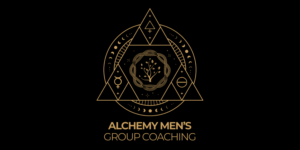In today’s fast-paced and ever-evolving professional landscape, continuous development and performance improvement are vital for both individuals and organizations. One highly effective yet often underutilized strategy is group coaching. Unlike traditional one-on-one coaching, group coaching harnesses the collective energy, insights, and support of a peer group, leading to profound and multifaceted benefits. Here, we explore the powerful advantages of group coaching and its impact on performance.
Enhanced Learning through Collective Wisdom 
Group coaching brings together individuals with diverse experiences, perspectives, and expertise. This diversity creates a rich learning environment where participants can share their unique insights and strategies. The collective wisdom of the group allows members to learn not only from the coach but also from each other. This collaborative learning approach accelerates knowledge acquisition and helps individuals apply new concepts more effectively in their roles.
Increased Accountability and Motivation
The group dynamic fosters a sense of accountability among participants. Knowing that peers are monitoring progress and expecting updates can significantly enhance motivation. This mutual accountability encourages participants to stay committed to their goals and follow through on action plans. The support and encouragement from the group also help individuals overcome challenges and maintain momentum, leading to sustained performance improvements.
Broader Perspective and Innovative Solutions
Group coaching provides a platform for individuals to gain new perspectives on their challenges. Exposure to different viewpoints and problem-solving approaches can inspire innovative solutions that might not emerge in a one-on-one setting. Group members can offer fresh ideas, question assumptions, and provide constructive feedback, all of which contribute to more creative and effective problem-solving.
Development of Interpersonal Skills
Participating in group coaching sessions requires individuals to engage in active listening, articulate their thoughts clearly, and provide feedback constructively. These interactions help to develop essential interpersonal skills such as communication, empathy, and teamwork. As participants practice and refine these skills within the group, they become more adept at collaborating and interacting with others in their professional environments, enhancing overall team performance.
 Supportive Network and Community Building
Supportive Network and Community Building
Group coaching creates a supportive network of peers who are often facing similar challenges and pursuing similar goals. This sense of community can be incredibly empowering. Participants build strong professional relationships, share resources, and offer emotional support, creating a positive and nurturing environment. The connections formed in group coaching sessions can extend beyond the coaching program, providing ongoing support and collaboration opportunities.
Cost-Effective Development
From an organizational perspective, group coaching is a cost-effective alternative to one-on-one coaching. It allows companies to provide development opportunities to more employees simultaneously, maximizing the return on investment. Additionally, the collaborative nature of group coaching means that participants often achieve results more quickly, further enhancing the cost efficiency of this approach.
Real-Time Feedback and Immediate Application
Group coaching sessions typically involve discussions of real-world scenarios and challenges that participants are currently facing. This immediacy allows for real-time feedback and the opportunity to apply new insights and strategies right away. The practical nature of group coaching ensures that learning is directly relevant and immediately beneficial to participants’ professional contexts.
Empowerment and Confidence Building
Sharing experiences and receiving support in a group setting can significantly boost participants’ confidence. Witnessing peers overcome similar obstacles and achieve their goals is inspiring and empowering. This confidence translates into a more proactive and resilient approach to challenges, ultimately enhancing performance and career satisfaction.
Conclusio n
n
Group coaching is a powerful tool for enhancing performance across various dimensions. By leveraging the collective wisdom, fostering accountability, and developing essential interpersonal skills, group coaching creates a dynamic and supportive environment conducive to growth and success. Organizations that invest in group coaching can expect to see not only improved individual performance but also a more cohesive and high-performing team culture. As the professional landscape continues to evolve, group coaching stands out as a versatile and effective strategy for unlocking potential and driving sustained performance improvements.
